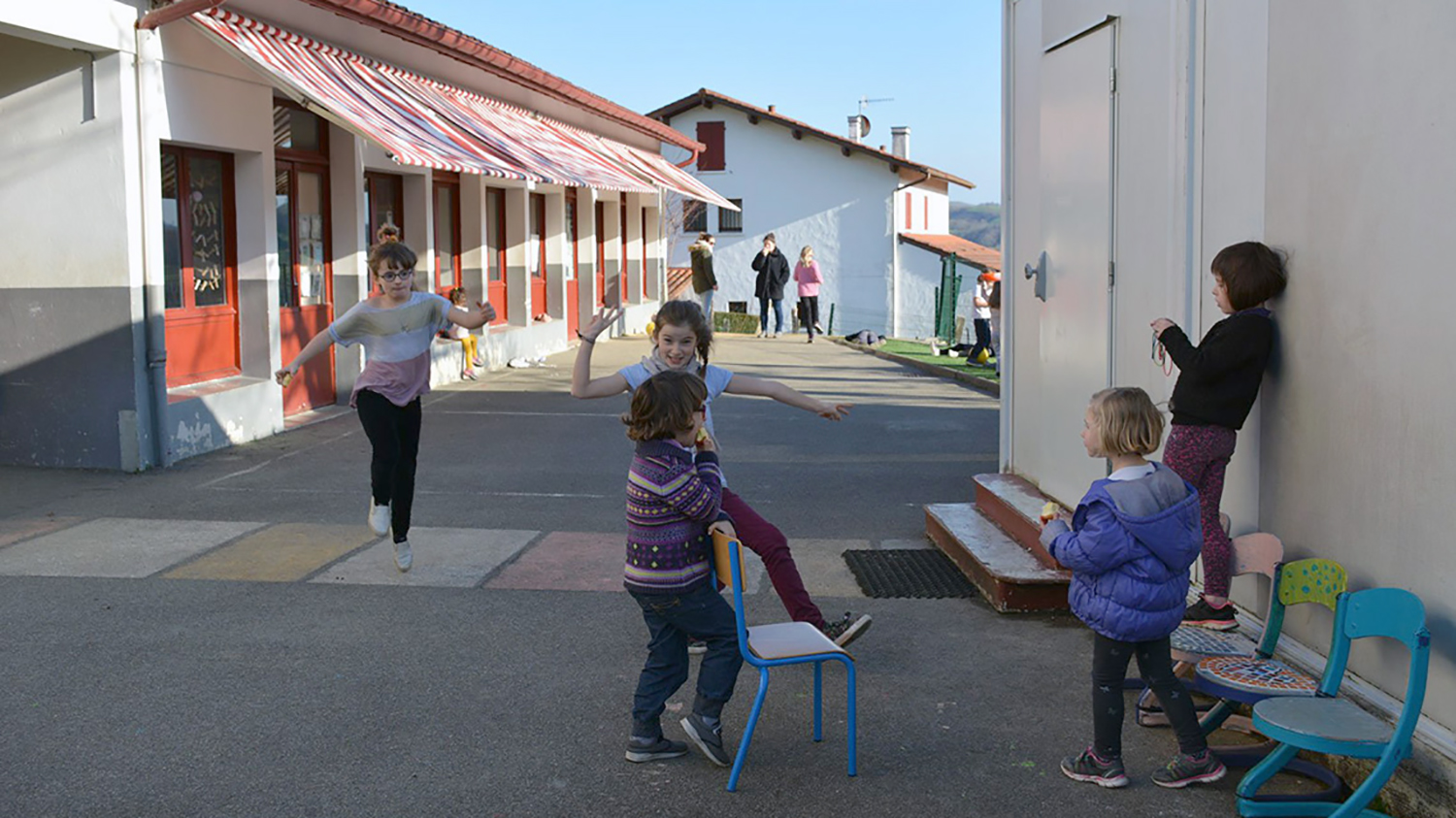"There are two options: keep thinking we're in the middle or work with the edges."
- Txerra Rodríguez has approved a thesis of almost 400 pages. Her work ended in March 2020: 30 years in mycology. Influence of the Basque associations on the revitalization of the Basque country 1987-2017. In this interview he talks about the difficult conciliation between the social movement and the professional structure, the need to look at what other social movements are doing and the fatigue that the members of the associations of Euskera have transmitted to him. However, he believes that they have the illusion to move forward.
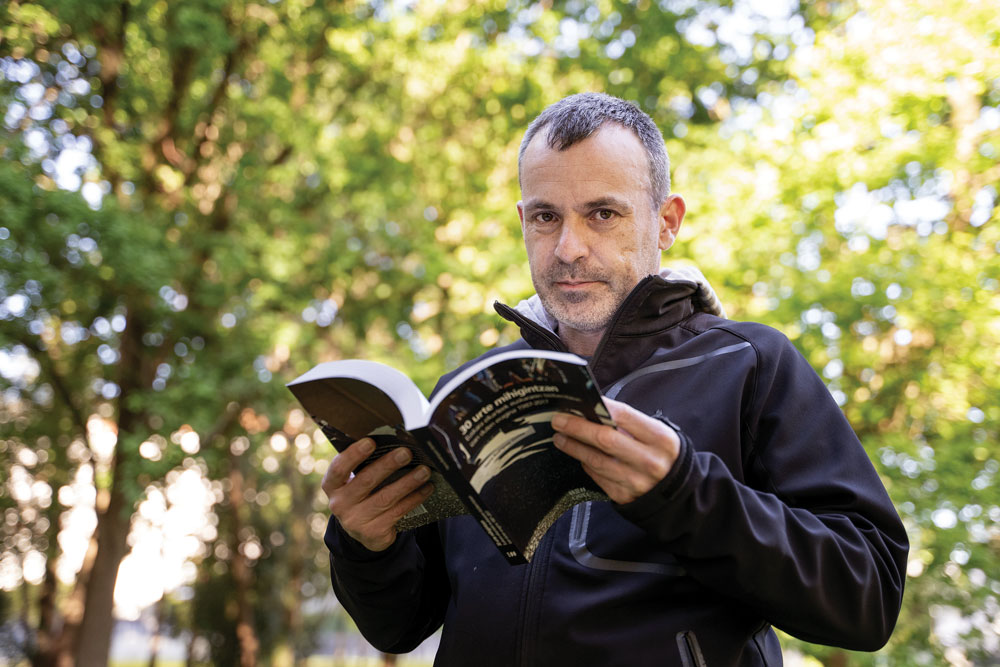
What were the Basque associations created for?
So it is written: to strengthen the Basque community. Basque associations were born conditioned in one way or another by the theories of Txepetxe [José María Sánchez Carrión]. At first it was like a widely used motto: 'What unites us is more than what separates us'. They emerged within that philosophy.
What did they mean when they 'compacted the community'?
This is one of the conclusions of the thesis. At around 30 years old, the Basque associations have not defined what the consolidation of the Basque community entails. In the thesis I have worked some things and brought the issue of compaction to three great blocks. One: Self-training. They are associations formed exclusively by Euskaldunes, which have worked in Euskera and have counted with whole speakers in the spotlight. Two: they have acted performatively from the beginning to today, from the philosophy of making the society of the future from today. Three: discourse; whether or not they have had the ability to make their own and independent discourse. There is no consensus among the interviewees. Some say that they have made the speech and others say that they have not come to form a whole speech. However, what they say is that they have been trained or not, that they have not had the capacity to socialize the discourse.
That's the reading I do about compaction. I do not think it has been defined what it is to compete and the objective has been set without knowing very well what that is.
Perhaps it is a difficult question the next one, because you said that the objective was not clear but ... Has the objective been achieved?
Its effect on compaction has been limited. At first some started to approach compaction, but over the years this idea has blurred or flooded a little. However, despite not being recognized initially by the associations, they have had a second main objective: to promote the use of Euskera. They understood that use is one of the main indicators of the revitalization of a language. I do not know to what extent they have achieved this, given that in recent years the use has stagnated or fallen, but the associations have created paths to show that in some areas of life it is possible to live in Basque.
The achievements of the partnerships are probably far from the goals set in the late 1980s and early 1990s. However, I believe that with the mechanisms that have been put in place by the associations, much more could not be achieved. The consolidation of the community and the promotion of its use are very ambitious objectives and, with the exception of exceptions, it was not possible to access them from the structures of militancy and work that the associations have constituted.
"Having staff in the associations has some highlights and not being others"
The word 'dream' appears in the thesis. Do you have to dream?
Of course. Someone can tell me that I have made a rather pessimistic reading. Almost all interviewees have told me something like this: "Perhaps we have not reached what we dreamed of, but how would the situation of the Basque country have been if there had been no associations? ".
Are associations tired?
I would say yes. In any case, I do not know whether this fatigue is not more general, whether all Basque cultural activity is not tired. The associations have worked for many years, have achieved good results, have achieved a strong level of structuring in different localities... But in general, you're feeling tired. There are difficulties and obstacles to progress, some have made efforts but have not been overcome. I also believe that, except for exceptions, they still have an illusion to move forward.
Is it possible to reconcile the social movement with the professional structure? Is this effective way?
I would not be able to answer whether it is an effective way or not. It has been, is and will be a knot to be liberated by associations and in this case by all Basque cultural activity.
In the 2010-2011 congress, it was decided to approach social movements, I don't know to what extent it has been accomplished. The balance is very difficult. I do not know if the answers that may come from the social economy or from social movements, but it is an issue that requires many things to be experienced and taken into account.
The reading I do after 30 years is that, as is very common in us, we have tried to jump from one end to the other. At first they created a militant structure, then surely all associations have had the ambition to be workers. What happened? What happens many times in us: “We have workers, who work them.” It has been forgotten that in the association both structures are necessary. There are strong partnerships with a large staff structure, but behind there is no one. On the other hand, there are associations that do not specifically want to adopt the professional structure. I would not say that one or the other works well or badly. In line with the philosophy of partnership, I believe that this is a decision that needs to be taken on the spot. The fact that they are workers has some resonances and not others.
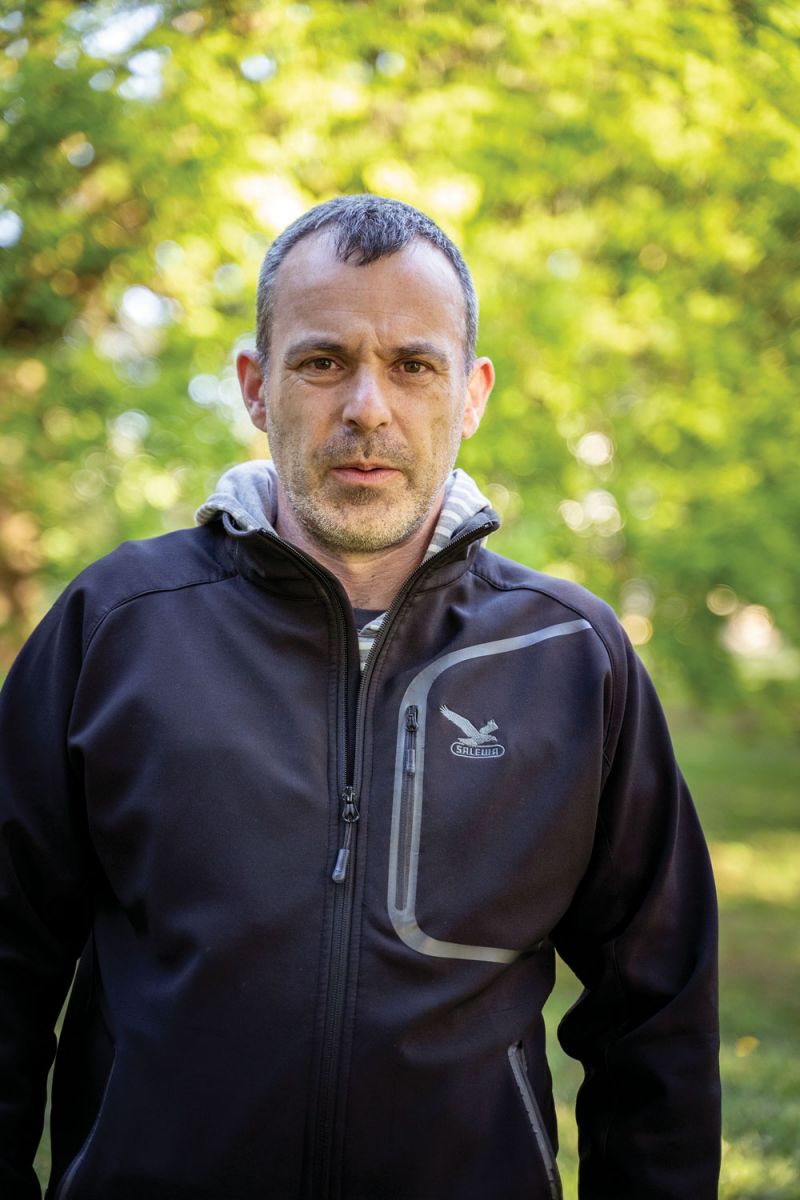
In his thesis he talks about the economic and political dependence of the associations. The fact that the principal income is municipal can lead to it. Have associations relegated criticism and denunciation to the background because of this dependence?
Associations, at first, claimed economic and political autonomy. However, as it has a professional structure, it needs an inescapable income. The first employees were from the local media and the associations bet on journals free of charge. Therefore, they had serious problems with their own sources of income. The only alternative was to have fixed sources of income through subsidies, which represents a clear loss of economic autonomy. That can ruin things, it doesn't have to, but after all, you can depend on who gives the money.
Economic dependence leads to a slight decrease in the passion for denunciation, but I believe that there is a philosophy of consensus in associations. The motto I told you at the beginning is there: 'What unites us is more than what separates us'. Associations have had a tendency from the very beginning to protest critically, but from cooking work. Before you go out into the street you have sought consensus, it has been historic and it goes on in part.
Economic dependence influences, but the philosophy of consensus also influences and some are forgotten. You have to manage both, nationally it can be otherwise, but in the villages, cooking work makes sense.
Other models of militancy are being tested in other social movements. She says that Basque associations also need to adapt to the new context. Are you adapting? Is it vital to adapt militancy to new models?
I don't know if it's vital. It is necessary. I have doubts, but all the interviewees have pointed out that one of the main problems is the lack of relief, sweating and the need for new blood. So this is one of the biggest problems of the associations, we have to look at what is being taken militarily into the subsequent movements and transfer it to us as far as possible.
I believe, and once again I do not know whether it is for associations or for the entire Basque industry, that we have to go further through the body of militancy. Sometimes we want to work militancy in a very cognitive way from the Basque sphere. You have to go through more tents, heart, viscera... In the same way, the passage through the body should bring that militancy to give us something that would contribute to our lives.
In other social movements they are looking for it, sometimes it has been achieved and sometimes it will be achieved, for example, in environmentalism.
"Associations have had a tendency from the outset to denunciation and criticism, but from kitchen work"
He says that they would have to learn from the processes of fighting and freeing the margins and that, if possible, start building alliances. You see several pants. What do you see?
Yeah, you're looking at some pants. The UEU organized the second meetings of the Basque culture and the social economy, as well as the conference on the deceleration organized by Jakin magazine. From here and from there, small alliances are being woven between Basque culture and feminism.
In practice, we are working on a number of paths. However, there is a lack of a more global conceptualization, such as saying "the defence of minority languages is the defence of biodiversity" or "the defence of minority languages is a struggle for feminism". We also have a lot to learn from discoloration, from internal and external colonizations.
Those of us who have chosen to live in Euskera are on the edges. We have two options: don't look at the corners and keep thinking that we're in the middle or look at the corners and rub, mix and work together. This is the way.
He says that associations should try to be more erotic. Please explain what more erotic means.
It has nothing to do with eroticism, it has to do with attractiveness. If a 20-year-old approaches the partnership, what does the partnership have to offer? Associations should be more attractive and, in general, in discourse, in practices, there is a lot to work on.
The thesis highlights the concern of the associations for the relief.
I said earlier that it is one of the main concerns of most associations. Often, when talking about the Basque culture and the associative movement that we have to learn a lot from feminism, the reflection of most is not so much to introduce some concepts of feminism into our practice, “how have they managed to mobilize so many young girls, to start military, and not us?”. Looking at this is like asking why such a sculpture that the Zamudio have at the entrance of the village and Derio have nothing. We can continue to look and ask ourselves, but that is how we will achieve nothing. We must look at what is behind us, at the causes, not so much at the consequences. Incorporating contributions from others, but Basque cultural activity and the associative movement should work their own way.
"I think the associative movement is none other than Topagunea's, and that has led to atrophy."
In recent years there has been a popular activation beyond the Basque associations. From the initiative of the district of Egia (Donostia) to Euskaraldi. What would you highlight about these initiatives?
I am not going to go into the assessment of Euskararen Aldia, but I would highlight two things. On the one hand, it is one of the few initiatives in which almost all the peoples of the Basque Country have participated. Almost the entire map has been covered and we have not given it enough importance. It responds to a historical desire of the associative movement: to cover up the map. On the other hand, since the association movement, the Basque commissions have opened the way to other forms of organization. That is also why partnerships have a great deal to learn. However, I do not believe that a committee in the Basque Country can do the work of an association, the associations should and do work in a much wider area.
Basque associations
meet in Topagunea. How should the relationship between the two be?
The meeting point has a very minority characteristic: first the groups of the peoples were formed and then the Topagune emerged. At least until 2011, Topagunea was led by local associations. During the years 2010-2011, during the reflection process, the associative movement gave other functions to the Topagune, leadership, representation, etc. What has happened over the years? The structure of the Forum has been consolidated year after year. On the contrary, until 2011 the number of associations has been increasing, since then it has been decreasing and in recent years it is on the plain. The associative movement is none other than that of Topagunea and I think it has brought an atrophy.
What should be the relationship between the associations and Topagune? I don't know. That too should be done, but I believe that sometimes going back to the ground is not bad. The meeting point must be understood, and I think you understand it, that one of the main functions that should be assumed is the strengthening of associationism. It's a very difficult job. Go to Urnieta or Amorebieta from a national structure and foster associationism. What happens? The bigger it is, the structure itself demands more and more work for its reproduction. We should return to associationism. It's coming back.
Nafarroa Beherean, Aiherrako 'Beltzegitea' etxean kokatuko da Eguzkilore haurtzain-etxe berria. Euskara, natura eta motrizitate librea oinarri harturik, heldu den apirilean hasiko dira zerbitzua eskaintzen.
To be honest, I don't know why I'm writing this. In today’s hostile environment, opinions of this kind are not well received. Perhaps LUZ will not publish this because it does not correspond to the opinions they have published so far (but if they have finally decided to publish... [+]









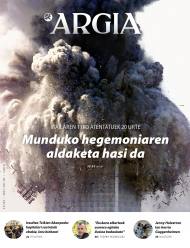


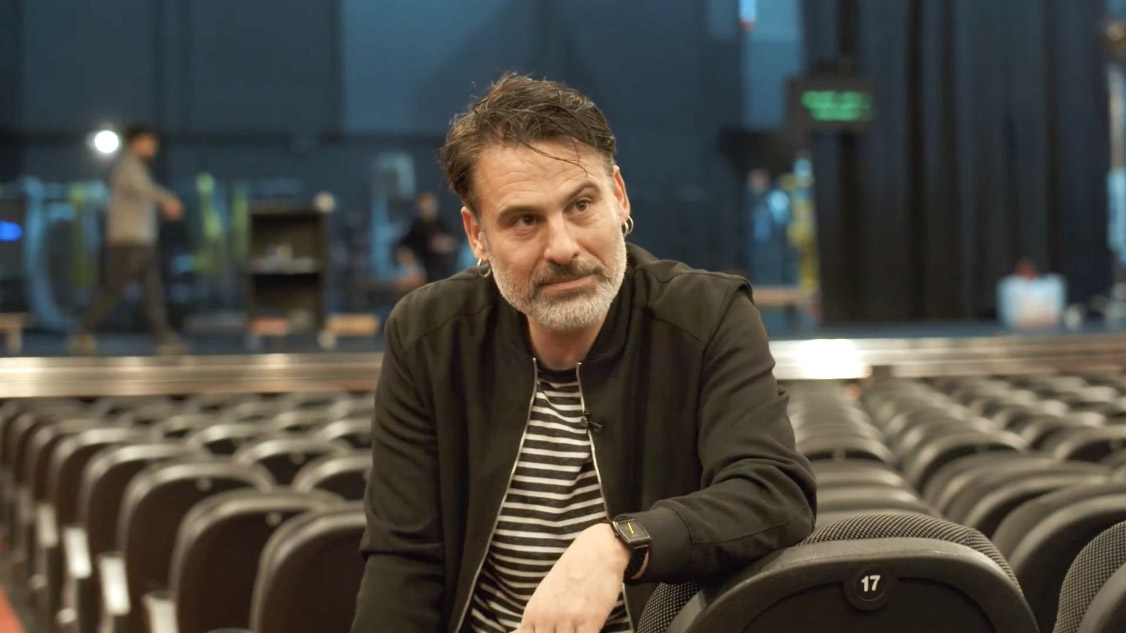

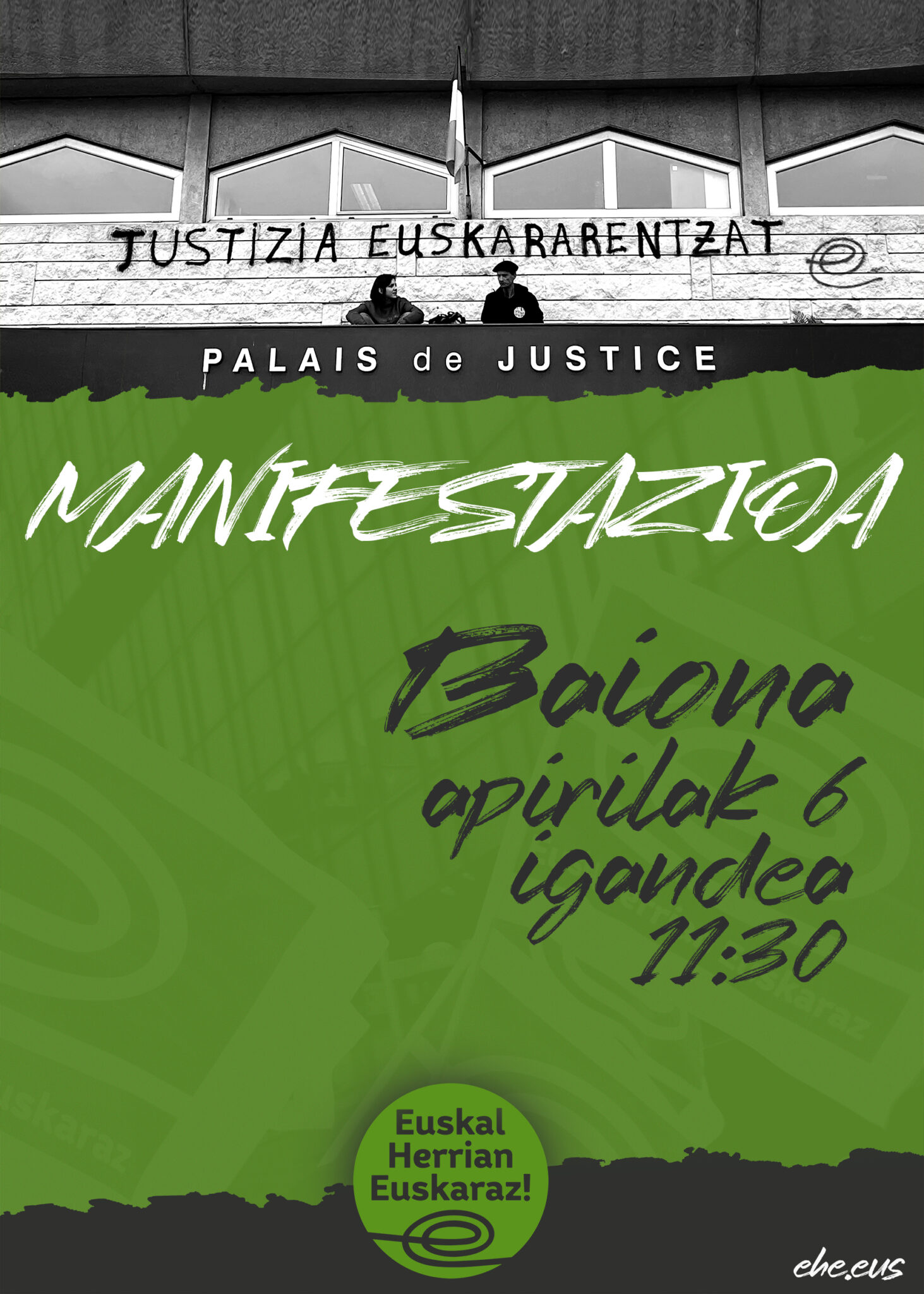


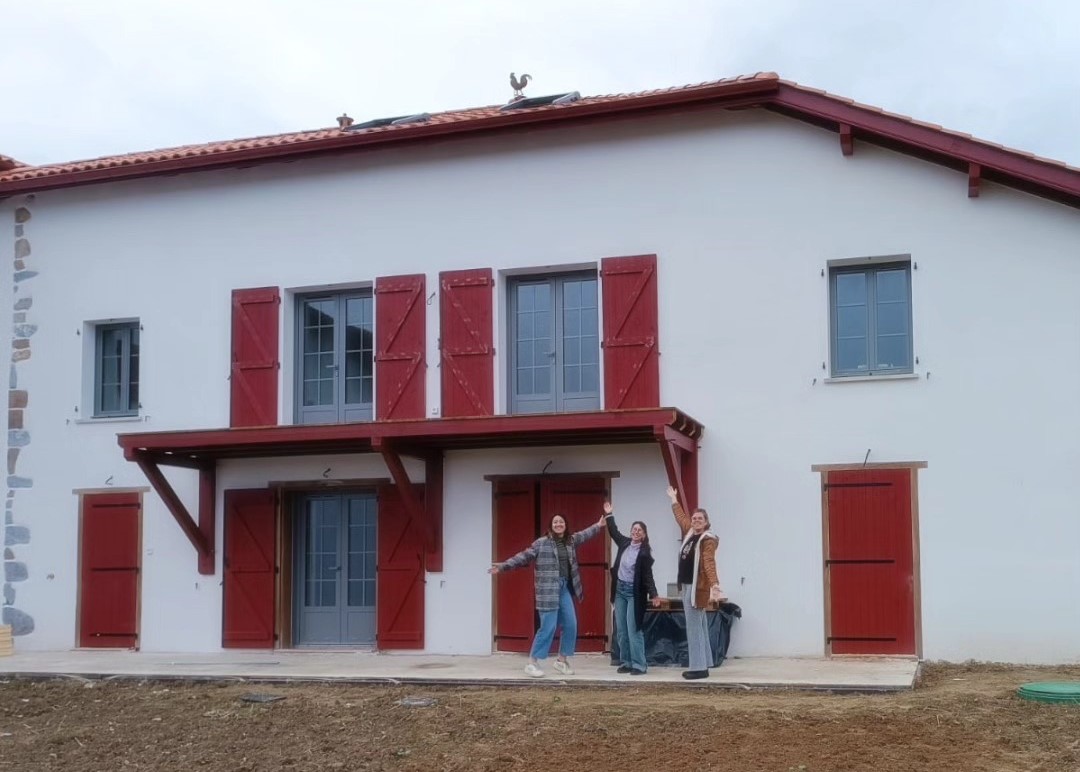

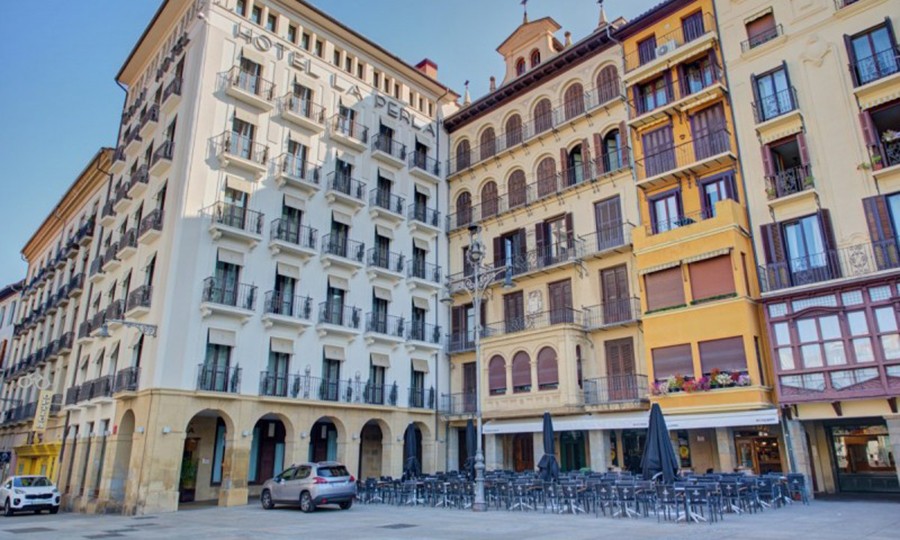

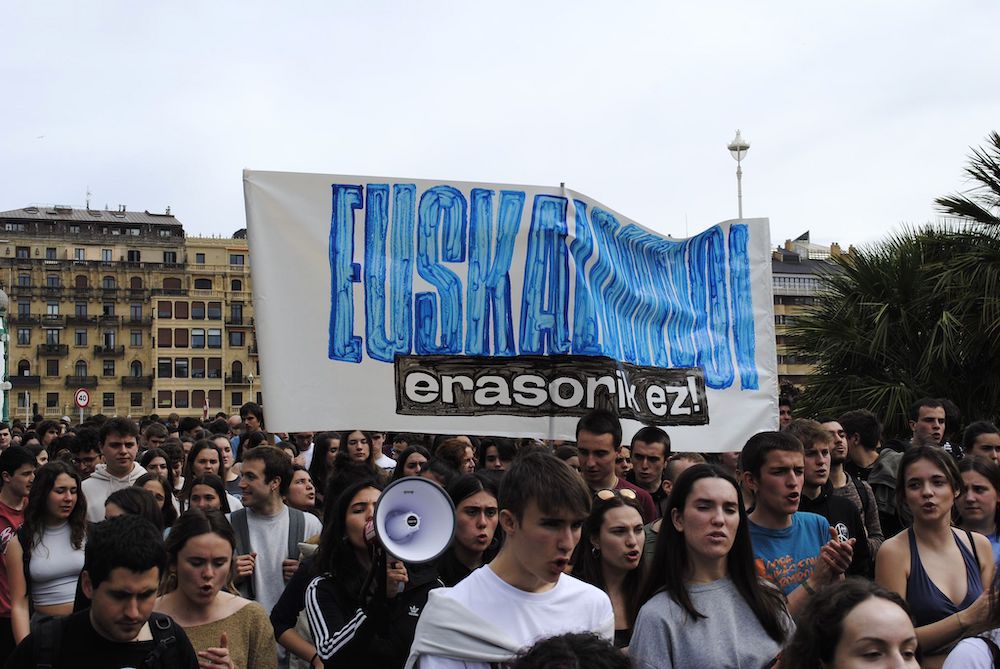
.jpg)

